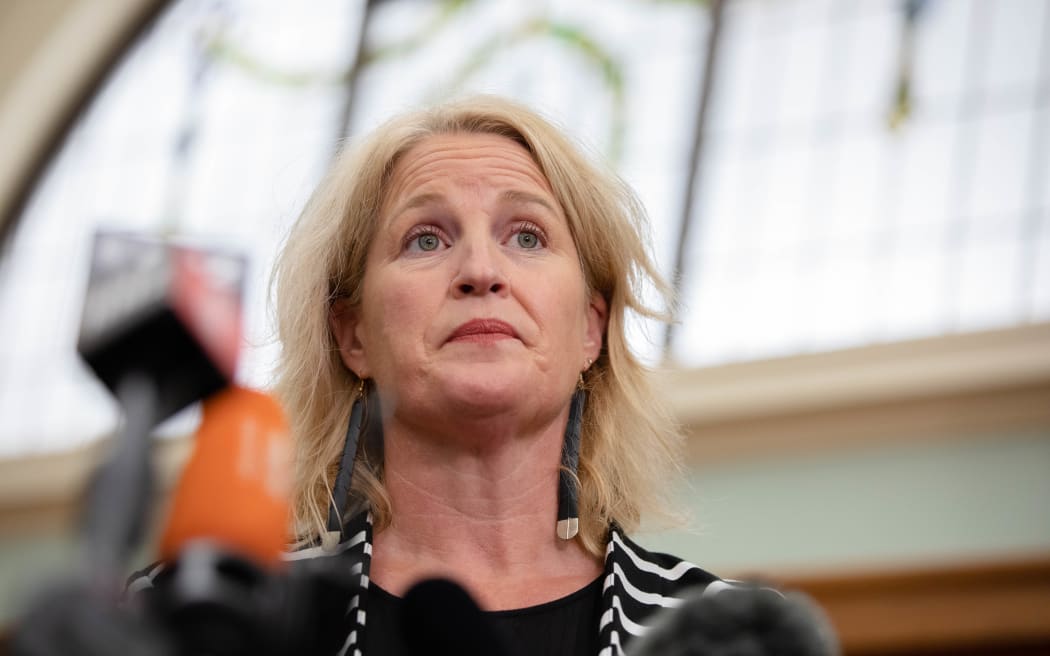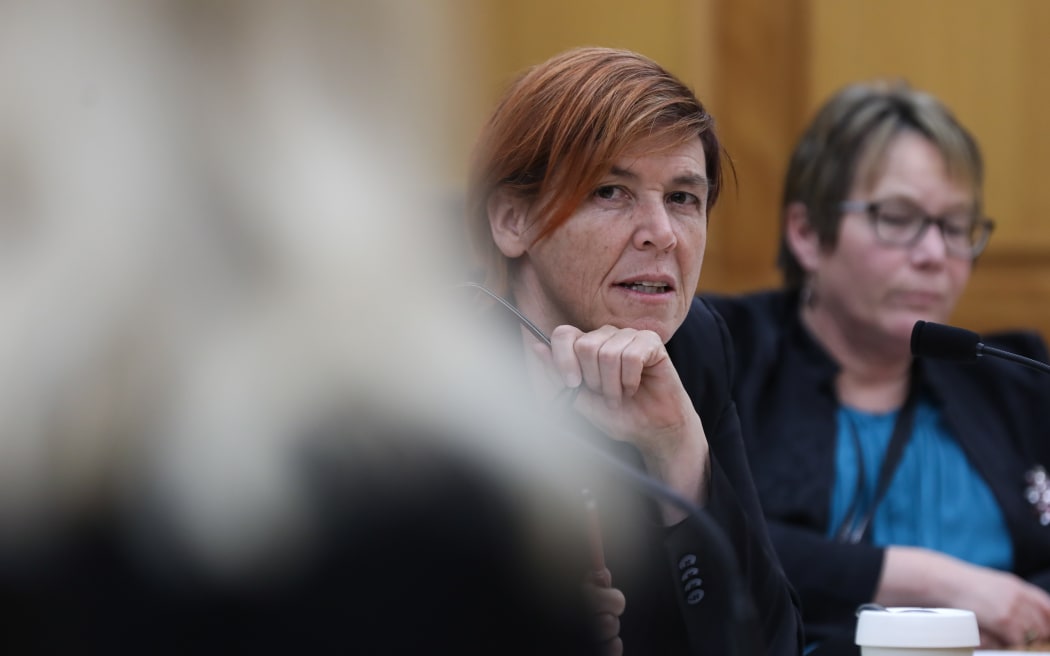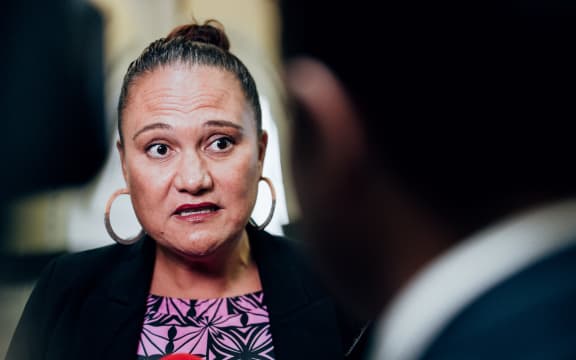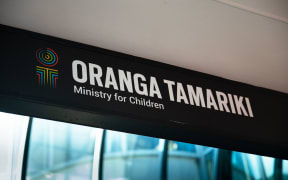The government is forging ahead with legislation to restructure how Oranga Tamariki is monitored despite overwhelming opposition that has seen a National MP storm out of Parliament.

National Party MP Louise Upston says the government's approach is "disgraceful" as the Oranga Tamariki bill moves through the committee stage. Photo: RNZ / Angus Dreaver
The Oranga Tamariki Oversight Bill gets rid of the country's top watchdog for young people, the Children's Commissioner, in favour of a new system which Labour says will be better.
The National Party, ACT, the Greens and Te Paati Māori do not support the bill as drafted and neither do child advocates who argue the legislation is rushed and bad.
National Party spokesperson for child poverty reduction and social development Louise Upston stormed out of the House during the debate this week, calling the government's approach "disgraceful" as the bill moves through the committee stage.
"Of any organisation the government is responsible for, the oversight of Oranga Tamariki has to be the priority, and to do this in this manner is disgraceful," Upston told the House.
"Stakeholders asked for time; members of Parliament asked for time; other select committee members from Labour ignored it."
The bill has been broadly pitched as creating extra safeguards for children living in state care but removes the Children's Commissioner as Oranga Tamariki's independent monitor.
Instead, a watchdog role will sit within the Education Review Office, a government department, and the Ombudsman will have the power to investigate and make recommendations.

Green Party's Jan Logie says the government's move went against the Waitangi Tribunal's recommendations. Photo: © VNP / Phil Smith
Green Party spokesperson for children and child poverty reduction Jan Logie said it was a bad move and went against the Waitangi Tribunal's recommendations.
"They absolutely said there needed to be an agency that was independent of the Crown and all of its departments," Logie said.
"That was part of the Waitangi Tribunal ruling and yet we get this, which is more of a tinkering with an existing system and, actually, a removing and shifting of roles from an agency that has a degree of independence from the Crown, which seems to me to be going in exactly the wrong direction."
Minister for Social Development and Employment Carmel Sepuloni said she had heard the concerns raised, but Logie questioned whether she was listening.
"I'd also like to know from the minister, who's saying she has listened to a lot of stakeholders and is engaged and has had the conversations, if any of those stakeholders asked for just these small changes and said they were fine with the monitor staying as a departmental agency," Logie said.
"I have not spoken to one person who is advocating for change on this who has had that position."
Sepuloni said she had met with a range of different groups including VOYCE Whakarongo Mai, an advocacy group for children in care, and had taken on some of their suggested changes.
VOYCE told RNZ it remained far from happy with the bill as it is drafted and any changes that had been made were tokenistic.
Sepuloni would not consider slowing the bill's progress down, saying the Beatie report found the government needed to "act with some urgency".

Minister for Social Development and Employment Carmel Sepuloni Photo: RNZ / Dom Thomas
"I wanted to use the committee stages to be able to go through line by line with regards to what is actually in the bill ... and to provide some assurance to the House and also to the general public, and particularly the stakeholders that are interested in what's happening here, with regards to the protections that are in place.
"And so I think the committee stages are really important but we're certainly not looking at slowing it down."
The Beattie report, which identified how oversight of Oranga Tamariki would be improved, did conclude the time was right for change but did not give a timeframe.
Critics argue the government should wait until the Royal Commission of Inquiry into Abuse in State Care reports back next year.
ACT's Karen Chour, who grew up in state care, said people were asking who the bill really protected.
"There were so many submissions where young people and organisations were concerned that the bill was more about protecting the organisation itself rather than protecting our young people."
The Oranga Tamariki Oversight Bill is progressing with only Labour's support and will be read a third time later this year.






